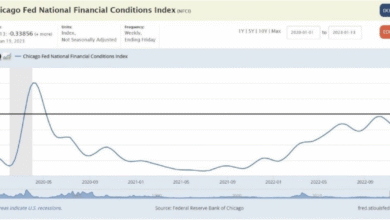Oil Prices Drop 4% as Trump Hints at Iran Deal

Oil prices are experiencing significant fluctuations as geopolitical tensions and diplomatic efforts shape the energy landscape. Recently, President Trump hinted at progress in negotiations regarding a U.S.-Iran nuclear deal, which has raised hopes in the oil market. This announcement contributed to a notable decline of 4% in oil prices, particularly affecting Brent crude, which saw a drop to $63.67 a barrel. The potential lifting of U.S. sanctions on Iran could lead to a surge in the country’s crude oil exports, dramatically impacting global supply dynamics. Furthermore, developments surrounding OPEC production increases are also influencing investor sentiment, marking a pivotal moment for those monitoring oil market news and pricing trends.
The world of crude oil commodities is facing a pivotal change as diplomatic relations between the U.S. and Iran evolve. Recent discussions hint at a possible rapprochement, which may redefine how the global oil supply is managed. Analysts are closely watching Brent and WTI futures as shifts in export capabilities and production strategies come into play. With the backdrop of OPEC’s decisions on output levels, these developments promise to reshape the landscape for energy traders and consumers alike. As the oil sector navigates this complex relationship, the implications of sanctions and international agreements remain critical factors influencing market stability.
Impact of U.S.-Iran Nuclear Deal on Oil Prices
The oil prices witnessed a notable decline of 4% following President Trump’s optimistic statements regarding a potential U.S.-Iran nuclear deal. Market analysts suggest that a successful agreement could lead to a substantial increase in Iran’s crude oil exports, which may further saturate the global oil market. Specifically, if Iran can resume exporting an additional one million barrels per day, the supply influx could significantly depress oil prices, specifically Brent crude prices that had been hovering around $63.67 per barrel before the news broke.
Moreover, the anticipation of a U.S.-Iran nuclear deal sends ripples across the oil market, affecting not just the prices but also the strategic decisions of organizations like OPEC. In response to the increasing production potential from Iran, OPEC+ may consider recalibrating its current production strategies, thereby softening the impact of the anticipated rise in supply. With the nuances of U.S. sanctions on Iran at play, any signals of easing restrictions can lead to increased volatility in oil prices.
Recent Trends in OPEC Production and Oil Market Stability
In light of recent developments, OPEC’s decision to escalate production by an additional 411,000 barrels per day in June prompts discussion on market stability amidst rising oil prices. This move comes despite the understanding that the surplus oil from Iran could potentially alter the delicate balance of supply and demand within the global market. The sudden increase in supply raises concerns, especially as Brent crude futures recently plummeted on the uncertainty surrounding the U.S.-Iran negotiations, highlighting a sensitive correlation between geopolitical developments and oil market fluctuations.
Furthermore, OPEC’s recent strategies to boost production come with careful consideration of the ongoing geopolitical dialogues, particularly concerning the Trump administration’s approach towards Iran. Analysts like Tamas Varga point out that while immediate prices may suffer due to surplus anticipations, the long-term effects could stabilize oil prices if OPEC adjusts its output in reaction to Iran’s reintegration into the oil market. Such strategic maneuvering from OPEC is essential as they navigate the challenges posed by potential U.S. sanctions on Iran and broader global economic influences.
The Role of Geopolitical Factors in Oil Market Dynamics
Geopolitical factors play a crucial role in shaping the oil market landscape, especially as evidenced by recent developments surrounding the U.S.-Iran nuclear deal. The uncertainty tied to U.S. sanctions on Iran has historically influenced oil prices, creating a ripple effect across the global oil market. As President Trump hinted at serious negotiations with Iran, the potential for a nuclear agreement revived investor interest and brought volatility to the marketplace. Surges or declines in oil prices are often a direct reflection of these intricate political interactions.
Moreover, the fluctuating sentiment regarding international relations significantly shapes market perceptions of oil supply and demand. As nations navigate their diplomatic ties, reports such as those from Iran’s Supreme Leader signaling a readiness to negotiate can create anticipatory movements in oil prices. The interconnectedness of global politics and oil market stability indicates that, while actual supply changes might occur slowly, the mere geopolitical dialogues can lead to immediate market reactions, demonstrating the fragility and responsiveness of oil prices in relation to global events.
Market Reactions to Changes in Oil Supply
Market reactions to changes in oil supply often create immediate effects on oil prices, as seen recently following the announcement of OPEC’s decision to increase production. With Brent crude prices dropping significantly, it becomes evident that any news related to oil supply levels can trigger swift investor responses. Analysts categorize these responses into active selling or buying trends based on real-time interpretations of supply changes or geopolitical tensions.
In the midst of the discussion about increasing oil supply from Iran as part of a potential nuclear deal, it’s essential to recognize the broader implications for global oil prices. Should OPEC decide to expedite their planned production increases in light of rising Iranian exports, we might see a more sustained downturn in oil prices, depending on how the market absorbs these additional barrels. The intricate dance between production decisions and oil prices showcases how sensitive the market is to both supply-side adjustments and geopolitical developments.
Future Outlook for Oil Prices Amid Geopolitical Tensions
Looking ahead, the future outlook for oil prices hinges significantly on geopolitical tensions and market supply shifts. As negotiations between the U.S. and Iran continue, there remains uncertainty about the potential reinstatement of Iranian oil in the global market. Analyst opinions suggest that if these negotiations bear fruit, the resulting increase in oil supply could dramatically influence global oil prices, pushing them lower if OPEC does not react effectively.
Additionally, the role of external factors, such as global demand recovery and OPEC’s forthcoming adjustments, will play a critical role in shaping endpoints for oil prices. Should consumer demand recover amidst economic growth, we could witness a scenario where increased supply from Iran does not negatively impact prices as much. However, investors remain cautious, keeping a close watch on both U.S. sanctions on Iran and OPEC’s policy decisions, feeding into the speculative nature of forecasting oil market trends.
Understanding OPEC’s Strategies and Market Manipulation
OPEC’s strategies are critical in understanding how oil prices are manipulated in response to both internal and external market pressures. With the recent increase in oil production, OPEC aims to manage supply levels to secure favorable prices for member countries while balancing the interests of global consumers. As geopolitical developments unfold, OPEC’s response to potential shifts in Iranian production underscores their strategical importance in the oil landscape.
The nuances of OPEC’s strategies often extend to how they perceive the broader implications of U.S. sanctions on Iran. Maintaining a grip on oil prices while navigating through potential increases in global supply from Iran can prove challenging for OPEC. Market analysts generally speculate that OPEC’s production decisions are often a tactical response to stabilize the market when external factors threaten to destabilize prices, showcasing how the organization operates as a key player in oil price determination.
Consequences of Trump’s Diplomatic Strategy on Global Oil Markets
President Trump’s diplomatic strategy, particularly concerning the U.S.-Iran nuclear deal, has far-reaching consequences for global oil markets. His administration’s approach has thrust the oil market into turbulent waters, whereby expectations of a thaw in relations could lead to shifts in oil supply dynamics. As shown recently, Trump’s statements of nearing negotiations caused oil prices to decrease in real-time, demonstrating the immediate impact of political maneuvering on market values.
These diplomatic efforts, when coupled with OPEC’s production strategies, can create a ripple effect throughout the global economy. If a nuclear deal is reached, the implications could range from a stabilizing effect on oil prices due to increased supply balance to potential price drops fueled by oversaturation in the market. The synergistic interplay between Trump’s diplomatic undertones and OPEC’s production strategies will be key determinants for how global oil markets navigate foreseeable challenges.
The Importance of Investor Sentiment in Oil Pricing
Investor sentiment plays an indispensable role in the fluctuations of oil prices, particularly during periods of geopolitical uncertainty. Recent events surrounding the U.S.-Iran negotiations underscore how quickly market perceptions can shift. Following Trump’s announcement, investors reacted negatively, reflecting a loss of confidence in oil prices, as evidenced by declines in Brent crude and WTI benchmarks. This phenomenon illustrates that oil markets are not solely driven by supply and demand metrics but heavily influenced by investor psychology.
As news breaks surrounding diplomatic dialogues, market players often respond with speculative trading, leading to increased volatility. Such rapid changes in investor sentiment can lead to wider price swings, showcasing the necessity for traders to stay alert to geopolitical developments. Understanding the interplay between investor sentiment and oil prices is crucial, particularly in a world where OPEC and global tensions can suddenly alter market landscapes.
Navigating Global Oil Supply and Demand Post-Iran Deal
As negotiations regarding the U.S.-Iran nuclear deal evolve, the navigation of global oil supply and demand takes center stage. Should an agreement materialize, the immediate effect could lead to an influx of Iranian crude entering the market, challenging existing price structures. The implications of this potential surge in supply necessitate careful consideration, as OPEC may need to enforce tighter controls to manage price stability amidst this newly accessible supply.
Additionally, the interplay between Iranian exports and overall global demand will dictate the success of oil prices moving forward. If demand continues to recover in key markets, this might mitigate the risks posed by an increased supply from Iran. Thus, the future of oil prices remains intricately tied to the outcomes of U.S.-Iran negotiations, alongside the strategic responses from OPEC in a constantly evolving market.
Frequently Asked Questions
How are oil prices affected by the Trump Iran deal negotiations?
Oil prices are significantly influenced by geopolitical events. President Trump’s negotiation efforts for a U.S.-Iran nuclear deal have led to a recent 4% drop in oil prices, particularly impacting Brent crude prices. Optimism surrounding these negotiations could forecast increased Iranian oil exports, which in turn may pressure global oil prices downward.
What impact does the potential U.S.-Iran nuclear deal have on Brent crude prices?
The potential U.S.-Iran nuclear deal is pivotal for Brent crude prices. Following Trump’s statements indicating progress in negotiations, Brent crude prices fell, reflecting market anticipations that a deal could lead to up to 1 million barrels per day of additional Iranian oil entering the market, thereby increasing supply and affecting pricing dynamics.
Why did oil prices fall after the recent OPEC production increase announcement?
Although OPEC recently announced an increase in production of 411,000 barrels per day, oil prices fell due to the expectation of a U.S.-Iran nuclear deal that might boost Iranian oil exports significantly. The combination of increased OPEC supply and the potential for more Iranian oil could overwhelm market demand, leading to lower oil prices.
What role do U.S. sanctions on Iran play in the oil market?
U.S. sanctions on Iran have drastically curtailed the country’s oil exports, contributing to tighter global oil supplies. The ongoing negotiations for a U.S.-Iran nuclear deal raise hopes of lifting these sanctions, thereby potentially restoring Iran’s oil exports and impacting oil prices significantly by increasing overall market supply.
How does the oil market react to geopolitical news such as Trump’s comments on Iran?
The oil market is highly sensitive to geopolitical developments. Traders often react sharply; for instance, Trump’s remarks about nearing a nuclear deal with Iran triggered a decline in oil prices. Such news can influence expectations of supply changes, leading to volatility in oil prices, as seen with recent fluctuations in Brent crude and WTI futures.
| Key Point | Details |
|---|---|
| Trump’s Statement | President Trump announced that the U.S. is close to a nuclear deal with Iran during his Middle East trip. |
| Iran’s Readiness | Iran’s supreme leader’s advisor indicated the country is ready to sign a nuclear deal with specific conditions in return for sanctions relief. |
| Impact on Oil Prices | Oil prices fell 4% with Brent crude at $63.67 and WTI at $60.64 due to market expectations surrounding the nuclear deal. |
| Market Analyst Comments | Analyst Tamas Varga stated the potential nuclear deal could lead to a rise in Iran’s oil exports by 1 million barrels per day, impacting prices negatively. |
| OPEC+ Response | OPEC+ is likely to adapt by reducing its planned additional barrel releases in response to a potential deal. |
| Iran’s Economic Situation | Iran’s economy is struggling due to the aftermath of U.S. sanctions, leading to significant protests and a currency crisis. |
| Supreme Leader’s Position | Reports suggest a shift in Ayatollah Khamenei’s stance on negotiations with the U.S. is crucial for regime stability. |
Summary
Oil prices have seen a notable decline of 4% following strong indications from President Trump regarding the advancement of a potential U.S.-Iran nuclear deal. As negotiations progress, the oil market reacts swiftly, reflecting how geopolitical developments can influence prices. The implications of such a deal, particularly in terms of increased Iranian oil exports, could further affect global supply dynamics. Investors and analysts alike should keep a close watch on the negotiations, as the outcomes will likely continue to sway oil prices in the future.



